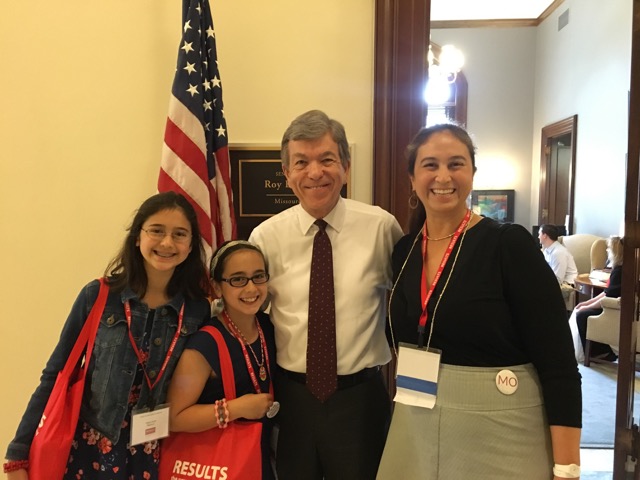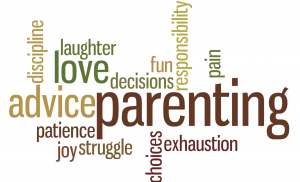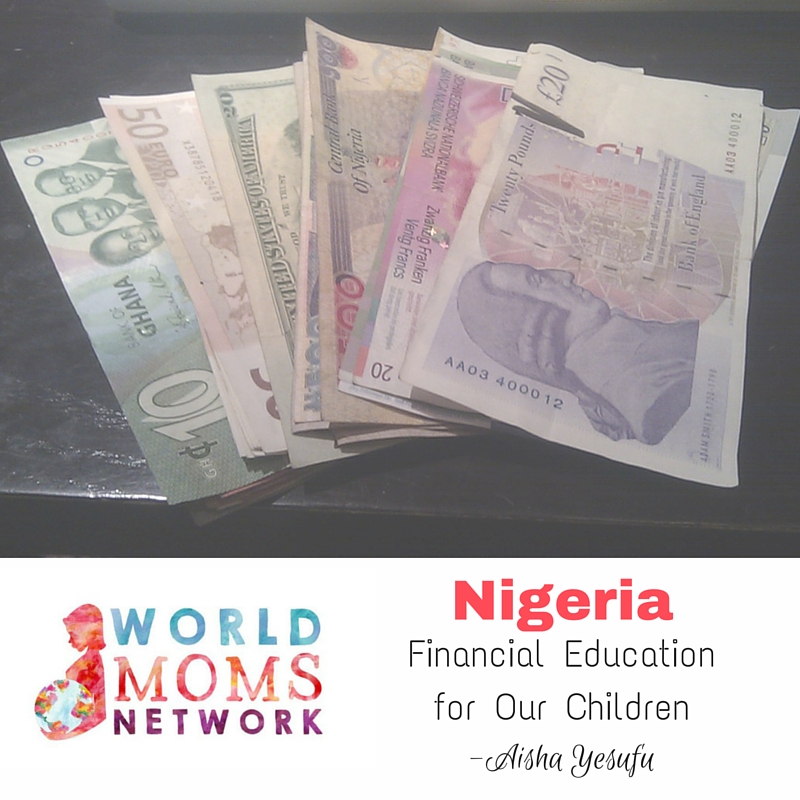
by Cindy Levin | Jul 12, 2016 | 2016, Independence, Politics, Poverty, Social Good, Uncategorized, USA, World Voice

Rushing past rural cornfields in Missouri by train
I spent a quiet Fourth of July watching the heartland of America roll by my train window on a journey from Chicago to St. Louis. Playing in my headphones was the soundtrack of an old educational cartoon called “Schoolhouse Rocks!” In honor of my country’s Independence Day, I was listening to musical explanations of the American Constitution, the concept of “manifest destiny” (the 19th-century idea that expansion of the U.S. from the Atlantic Ocean to the Pacific was justified and inevitable), and the American Revolution. The simplistic way the songs presented information to me as a child in the 1970’s led me to believe that everything my government did was right and good. I completely trusted American authority despite glaring evidence that manifest destiny didn’t work well at all for the Native Americans who already lived in the center of the continent.
Now, in my 40’s, I know better. I see that the America that I live in, is not a nationally shared experience. For instance, the little rural towns I saw from the train are not my day-to-day reality although almost 1/5 of all U.S. residents live in communities like them. Here’s another difference: twenty-three million Americans live in food deserts – urban and rural – with little to no access to fresh fruits and vegetables while others are surrounded by high end grocery stores. Other differences are not bound by location. From sea to shining sea, challenging voices ring out to proclaim “Black Lives Matter” to help everyone understand that shootings of citizens by police officers is a reality for people of some skin tones and not for others. Each person lives a different truth depending on one’s geography, race, income, and a host of other factors. Clearly, for all its wealth and power, the United States is letting many of our people down.

#WorldMom Cindy and her daughters with U.S. Senator Roy Blunt in Washington D.C.
Such everyday injustices are what led me to Washington D.C the week before Independence Day to join hundred of anti-poverty advocates at the RESULTS International Conference and Lobby Day with my daughters. We visited the offices of our elected officials and urged them to change systems that keep so many people in poverty across the U.S. and around the world.
Every year we go, we wade into a hostile partisan landscape. We have to move past the open negativity our leaders show on T.V. in order to connect with the individual humans they are and paint a picture of what life is like for Americans they might never meet. If left to their own devices, party extremists drift further apart. Like a mother bringing arguing siblings back together, it’s our responsibility as citizens to reach out and remind them how they are connected to all of us. In this way, we guide our country toward fairer tax policies, better nutrition, and improved maternal/child health…all with a goal of providing each person with opportunity to reach their full potential in life.
Back on the train, hearing the words of our constitution sung in folk-style harmonies reminded me how every person in our political extremes truly believes she or he is honoring the American founding fathers’ vision. No matter how far apart we are on policy ideas, every one of us wants our country to thrive. We want to be treated with respect and raise our children in safe communities with good schools. We truly have more shared values than we often think we do.

Cindy’s daughter in front of the United States Capitol building
Here is my vision of my country and for my country:
My America is a place where diversity is strength, not something to be feared. It’s where voices can be heard when we find the courage to speak out. It’s a place where my children can live, grow, and thrive. It’s not colorblind. It’s not perfect. It’s not best in the world about everything, but we are a country of possibilities and leadership. My America is a place where we can speak truth to power and come closer to becoming a more perfect union.
How would you finish the phrase “My country is…” for the place you currently call home? What parts of your answer are different for your fellow citizens? How can you be engaged in helping your country be the best it can be for all people?
Cynthia Changyit Levin is a mother, advocate, speaker, and author of the upcoming book “From Changing Diapers to Changing the World: Why Moms Make Great Advocates and How to Get Started.” A rare breed of non-partisan activist who works across a variety of issues, she coaches volunteers of all ages to build productive relationships with members of Congress. She advocated side-by-side with her two children from their toddler to teen years and crafted a new approach to advocacy based upon her strengths as a mother. Cynthia’s writing and work have appeared in The New York Times, The Financial Times, the Washington Post, and many other national and regional publications. She received the 2021 Cameron Duncan Media Award from RESULTS Educational Fund for her citizen journalism on poverty issues. When she’s not changing the world, Cynthia is usually curled up reading sci-fi/fantasy novels or comic books in which someone else is saving the world.
More Posts - Website
Follow Me:


by Marie Kléber | Jul 11, 2016 | France, Life, Motherhood, Parenting

Source: http://www.corr.us/services/parenting-resources
Last weekend I was away visiting some friends in the South of France. While we were talking about how hard it can be to raise kids, we realized that whatever we do, we’ll always have to face criticism, whether it is from family members, friends with kids or other parents around. People have an idea about everything. And when it comes to parenting or motherhood, they think that they must share what they think about this or that. Without even being asked to do so.
When it happens, we tend to feel like we are the worst mums ever. We’re not doing things the way we should do them. Others seem to know better. It’s very easy to get depressed, to cry and go straight to the first doctor we know to empty our hearts full of negativity and stress.
What if the others weren’t wrong, just different?
We all have our ideas on how we wish to raise our kids, what values we wish to pass on to them, on how well it feels for us to deliver a specific message. There are no rules, except the ones everybody knows, that say we have to take care of our kids and respect their needs, respect who they are and help them grow. The way we do it belongs to us. And most of the time we do the best we can with what we have, what we have been taught, what we have learnt on the way – what we feel inside our hearts.
In France nowadays we hear a lot about attachment parenting (éducation bienveillante). The idea is brilliant. But in reality, it’s not THAT easy to put into place. For some parents it’s fine and it works perfectly with their kids, for others it does not fit in their world. They can try for hours and days, without seeing any results. Does this mean they are bad parents? Does this mean others have the right to judge them and put a red sticker on their faces?
I don’t think so.
At the end of the day, we want the same thing: to raise happy, healthy and confident children. In order to do so, I think we ought to help each other and accept that one approach is not better than another one. When asked, we can share our ideas. When not, why create more mess in the head of parents who already feel overwhelmed by the task at hand?
How do you welcome negative criticism about the way you are raising your kids?
This is an original post for World Moms Network written by Marie Kleber in France.
Marie is from France and is living near Paris, after spending 6 years in Irlande. She is a single mum of one, sharing her time between work, family life and writing, her passion. She already wrote 6 books in her native langage.
She loves reading, photography, meeting friends and sharing life experiences. She blogs about domestic abuse, parenting and poetry @https://mahshiandmarshmallow.wordpress.com
More Posts - Website

by Kirsten Doyle (Canada) | Jul 8, 2016 | Boys, Canada, Gender, Girls, North America, Relationships, Respect, The Americas
 A couple of weeks ago, shortly before Toronto schools let out for the summer, my ten-year-old son talked to me about an older boy who was bothering him in the school yard. This kid was trying to take his basketball and saying things like, “You’re such a woman.”
A couple of weeks ago, shortly before Toronto schools let out for the summer, my ten-year-old son talked to me about an older boy who was bothering him in the school yard. This kid was trying to take his basketball and saying things like, “You’re such a woman.”
We helped my son through that situation, and the last few days of the school year passed uneventfully. That incident didn’t stop bothering me, though. With all of the gains we like to think we have made when it comes to gender equality, we still live in a world where boys use the word “woman” as an insult.
What message does that send to any girls who happen to be standing around listening? How are they supposed to feel about themselves and their roles in society?
What message does it send to boys like my son? How can I raise him to be respectful toward women when the attitude that men are superior is already present in elementary school?
This morning, something else happened that concerned me. My son and I were part of a cluster of parents and kids waiting for their summer school bus to show up. The adults were chatting and drinking coffee; the kids were playing hopscotch and kicking soccer balls around. It was all fun and games, until a little boy ran up behind a little girl and bonked her lightly on the head.
Now, the little boy was just goofing around, but the little girl was very upset. She ran up to her mother and told her about the mean boy bonking her on the head. Another parent standing nearby said, “Oh, that just means he likes you!”
This may seem harmless to many people, but it really isn’t. It plants the seed in our kids – boys and girls – that abuse is an acceptable demonstration of affection. It teaches girls that in order to be liked, they have to put up with people treating them badly. It teaches boys that they can be jerks and get away with it.
As parents of young kids, we often try to avoid thinking of our kids eventually dating. But the reality is that eventually, our kids will date.
And they way they will treat their boyfriends or girlfriends – and the way they will expect to be treated in return – will be based on the interpersonal skills they are learning now, at the ages of eight, nine and ten.
We live in a society where, in spite of enormous progress when it comes to gender equality, women are still routinely discriminated against. We are told what we have to look like in order to be considered beautiful. We are blamed for injustices that are committed against us, like rape or domestic violence. We are paid less than men in equivalent positions, and even though so many of us work outside the home, we still bear the brunt of household responsibilities.
As the mother of sons, I feel a responsibility to do my part to turn the tide. As they navigate their school years, I want my boys to treat the girls they encounter with respect. I want them to speak out against injustices that they see, and to stand up for girls who find themselves in difficult situations. The school yard incidents that I have seen are the reason we have a problem. I want my sons to be a part of the solution.
Are you the parent of boys or girls? How do you teach them about gender equality and fairness?
This is an original post to World Moms Network by Kirsten Doyle. Photo credit: Jonathan Rhodes. This picture has a creative commons attribution license.

Kirsten Doyle was born in South Africa. After completing university, she drifted for a while and finally washed up in Canada in 2000. She is Mom to two boys who have reached the stage of eating everything in sight (but still remaining skinny).
Kirsten was a computer programmer for a while before migrating into I.T. project management. Eventually she tossed in the corporate life entirely in order to be a self-employed writer and editor. She is now living her best life writing about mental health and addictions, and posting videos to two YouTube channels.
When Kirsten is not wrestling with her kids or writing up a storm, she can be seen on Toronto's streets putting many miles onto her running shoes. Every year, she runs a half-marathon to benefit children with autism, inspired by her older son who lives life on the autism spectrum.
Final piece of information: Kirsten is lucky enough to be married to the funniest guy in the world.
Connect with her on Facebook, Twitter and Instagram.
Be sure to check out her YouTube channels at My Gen X Life and Word Salad With Coffee!
More Posts
Follow Me:



by Aisha Yesufu | Jul 7, 2016 | 2016, Africa, Africa and Middle East, Communication, Education, Family, Motherhood, Nigeria, Priorities, School, Study Abroad, Travel, World Motherhood

“Mummy, is it Buhari’s fault that the economy is bad?” My daughter asked me this when she returned from school one day. She’s referring to Muhammadu Buhari, the president of Nigeria. “You must always call him President Buhari,” I corrected my daughter. Then I realised this was another opportunity to educate my daughter about economy and finances.
I told her it’s not President Buhari’s fault that the economy is bad, rather it is the choices we made as a country. I told her Nigeria is like a big family. Imagine that the father had a big job and they paid him a very good salary. In this family, perhaps the mother chose not to work because the father’s salary was so good. The family lived well, and often traveled abroad for holidays, wearing designer clothes. Everything they did was expensive. They had huge parties all the time. Their children went to expensive schools and they go abroad for treatment even for a simple headache.
The father earned well, but did not save anything and sometimes borrowed even more money to maintain their extravagant lifestyle. At one time some family members started stealing the money for their own personal enjoyment. They stole this money right out of the family account.
One day the company the father worked for was no longer able pay the father his big salary, so they gave him a pay cut. Remember, the father did not save when he was earning a high income. Remember, the family led a very expensive lifestyle. Remember, the mother had no job, so she couldn’t support the family. So, there was problem.
Eventually, a new father was brought in and the salary was reduced further and further. The family still had no savings and money was still being stolen from the family account. The new father found it difficult to support that expensive lifestyle the family was accustomed to. In this case, there would be economic problems and it wouldn’t necessarily be the father’s fault. In the meantime, the father must still deal with the people who stole from the family account, and try to recover the money.
“Do you understand now?” I asked. “Yes, I do,” said my daughter, and she went away, satisfied.
Our children know something is wrong and we need to explain to them what is going on. At a school meeting recently, I overheard a parent wondering how can she tell her child they can’t afford to pay school fees? I told them as parents you need to financially educate your children. This is not done in school, so it’s the parent’s duty to ensure that children are aware of economy and finances.
My children are part of our family’s economic life. They know what’s going on in our businesses and their father’s job. They know when things are good that we are investing, and they know why we invest. They know where the money for their school fees is coming from and what sacrifices were made to make ends meet. When business is bad, they know. At one time I thought we couldn’t pay my daughter’s school fees and I told her she had to delay a week or more before starting school (we always pay school fees before resumption date. It’s my personal stand). Luckily we managed to pay on time, but she learned that it’s a possibility and understands life sometimes throws a spanner into the works.
When we joined my husband in Abuja in 2011, my children’s school fees were fifty times higher than what we were used to paying. I had to sit my children down to explain that we needed to make sacrifices for their education. One of the decisions we made as a family was to reduce travelling abroad for holidays. So we did, and my children understood why.
In December, my daughter went to Europe for her school’s annual ski trip. She noted that there were a lot fewer students on the trip than previous years. My daughter also went to Wales this month for the Duke of Edinburgh expedition. Similarly, not all the students participating in the Duke of Edinburgh programme went for the expedition. I had to explain to her there was economic downturn and it was not easy for all families to afford such trips. At the moment, we are seriously worried about paying for education because our currency was losing value. She gave me a worried look and said, “God willing, everything will be okay.” “Amen,” I replied.
My daughter left the house a better-informed child. I hope that when she becomes an adult, she will be better prepared for economic and financial challenges because she learned about it as a child. As parents, we cannot shield our children from the reality of life. Let them learn from us and be more financially savvy.
How do you ensure that your children get a good understanding of your family finances?
This is an original post written for World Moms Blog by Aisha Yesufu in Nigeria.
Photo credit: Bob Ryskamp / Flickr

by Maureen | Jul 5, 2016 | Asia and Oceania, Caring, Health, Indonesia, Inspirational, Scoops of Joy
The news hit me hard.
“Where do we go from here?”
“How can I explain it to him?”
“How will he cope?”
“How am I going to help him through this?”
All the above has been clouding my mind for the past couple of months. I tried to shut it down by keeping my already busy self even busier. Burying myself deeper with work, refusing to deal with the reality.
Motherhood didn’t prepare me for this!
At least it hasn’t yet…
My heart would lament at the sad truth.
Some nights the little voice inside me would whisper “What if he doesn’t survive?” Those little voices often times grow bigger and louder and leave me paralyzed at the thought of how Ican help my son through the worse possible scenario.
The unknown can be a truly terrible thing and I am searching high and low for comfort or faith in how everything will turn out for us. For my son and I. We will get through this, no matter what!
Some nights my heart breaks into a million little pieces seeing my son’s face as he sleeps peacefully. Tears running down my face like there’s no tomorrow.
“How do we protect our children from heartache?”
“God, please help me!”
It is almost a natural instinct for mothers to protect their children, right? Yet life will bring us heartache, disappointments and pain. So how can I help and guide my son to manage all of those possibilities?
Then it dawned on me, I cannot forever protect him with a bubble wrap. I cannot shield him from bad news. The world is not always rainbow and sunshine. There will be bad days but hope is always there. Hope is what will get us through the not so good days.
 My son, my precious child may need to learn more about heartache sooner than his peers. He has overcome the facts that his parents are divorced. He has learned to distinguish that a family unit does not always consists of Mommy and Daddy. He now understands that he has two homes filled with people that love him.
My son, my precious child may need to learn more about heartache sooner than his peers. He has overcome the facts that his parents are divorced. He has learned to distinguish that a family unit does not always consists of Mommy and Daddy. He now understands that he has two homes filled with people that love him.
As much as I wish to shield him from sadness, I realize I can’t prevent the circumstances in our lives.
All I can do is assure him that everyone loves him. Reminding him that I will understand his feelings and validate them. Knowing my child, I know he can ask the most gut wrenching questions at times so I must prepare myself for that. My son needs a lot of encouragement to talk openly about his feelings and it takes great patience until he is ready to be open. Therefore, I will wait for his cue while being understanding and assure him how much he is loved.
How do you help your child going through difficult times?
This is an original article by World Mom Maureen Hitipeuw from Indonesia









 A couple of weeks ago, shortly before Toronto schools let out for the summer, my ten-year-old son talked to me about an older boy who was bothering him in the school yard. This kid was trying to take his basketball and saying things like, “You’re such a woman.”
A couple of weeks ago, shortly before Toronto schools let out for the summer, my ten-year-old son talked to me about an older boy who was bothering him in the school yard. This kid was trying to take his basketball and saying things like, “You’re such a woman.”



 My son, my precious child may need to learn more about heartache sooner than his peers. He has overcome the facts that his parents are divorced. He has learned to distinguish that a family unit does not always consists of Mommy and Daddy. He now understands that he has two homes filled with people that love him.
My son, my precious child may need to learn more about heartache sooner than his peers. He has overcome the facts that his parents are divorced. He has learned to distinguish that a family unit does not always consists of Mommy and Daddy. He now understands that he has two homes filled with people that love him.



